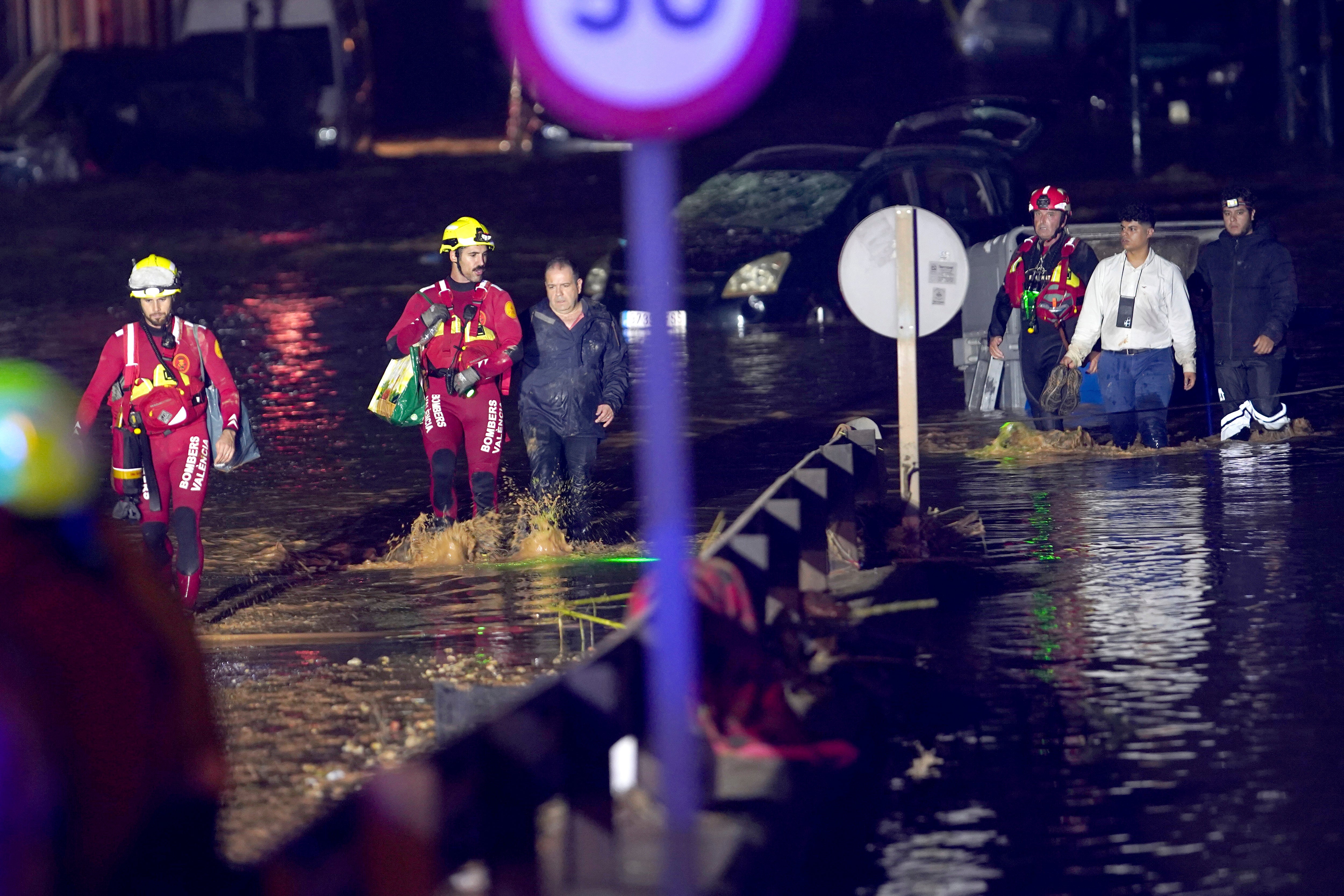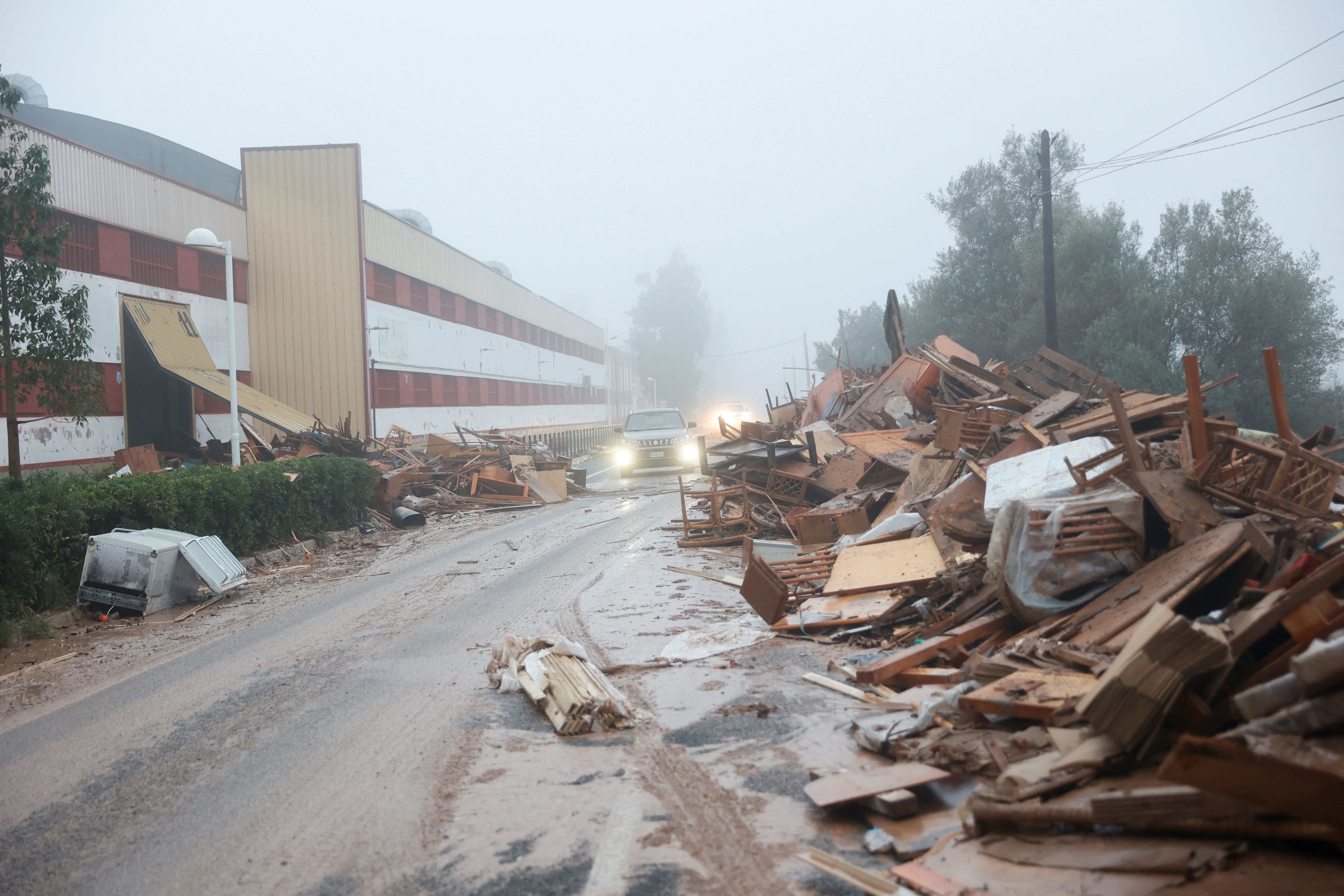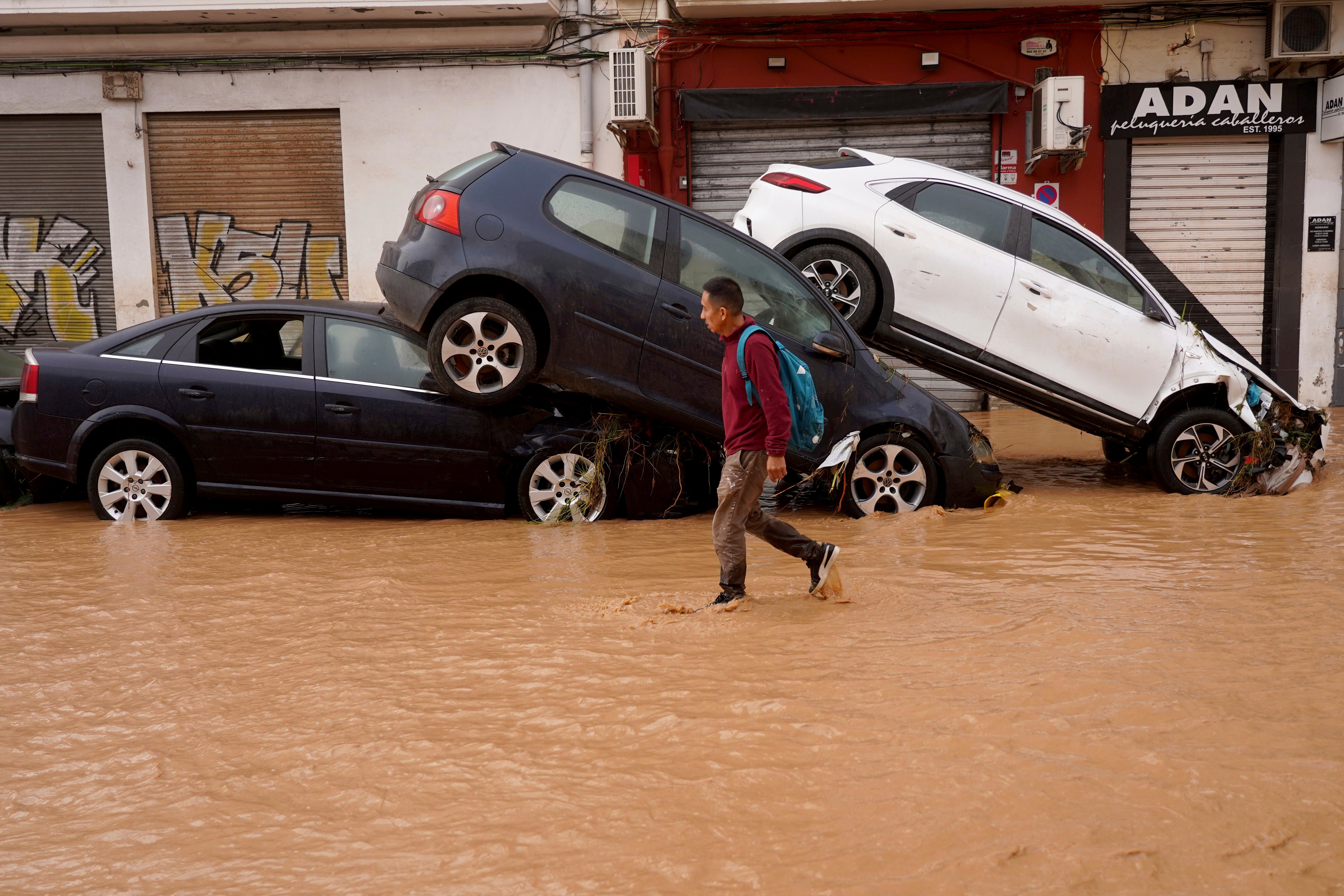Flash floods turned streets into rivers, destroyed homes, and killed at least 95 people in Spain’s worst natural disaster in recent memory.
Torrential rainstorms hit southern and eastern parts of the country, including the Costa del Sol region, where the city of Malaga is located, and Valencia in the east.
Rescuers waded through mud-coloured water while cars and vans appeared stranded. More than 1,000 soldiers from Spain’s emergency response units have been deployed to the worst-hit areas.
A 71-year-old British man is confirmed to be among the victims. He died in hospital hours after being rescued from his home on the outskirts of Alhaurin de la Torre in Malaga.
“He was suffering from hypothermia and died after suffering several cardiac arrests,” said Juanma Moreno, president of the Andalusia region. “A hug to your family.”
For the latest updates on the flooding follow our blog here

Carlos Mazon, the regional leader of Valencia, said many people remained trapped in inaccessible locations as searches continued for those who remain unaccounted for.
Spain’s state weather agency AEMET declared a red alert in Valencia, with some areas, such as the towns of Turis and Utiel, recording 7.9 inches of rainfall.
Ricardo Gabaldon, the mayor of Utiel, told national broadcaster RTVE: “We were trapped like rats. Cars and trash containers were flowing down the streets. The water was rising to three metres.”

Javier Berenguer, 63, escaped his bakery in Utiel when the water threatened to overwhelm him. He said it rose to 2.5 metres (8.2ft) inside his premises, and he fears that his livelihood has been destroyed.
“I had to get out of a window as best I could because the water was already coming up to my shoulders. I took refuge on the first floor with the neighbours, and I stayed there all night,” he said. “It has taken everything. I have to throw everything out of the bakery – the freezers, ovens, everything.”
Maria Carmen Martinez, another Utiel resident, witnessed a harrowing rescue. “It was horrible, horrible. There was a man there clinging to a fence, who was falling and calling people for help,” she said. “They couldn’t help him until the helicopters came and took him away.”

In the town of Paiporta, near Valencia, mayor Maribel Albalat said more than 30 people had died, including six residents of a nursing home. Television pictures showed elderly residents in wheelchairs as the water rose over their knees.
In the village of Letur in the neighbouring Castilla-La Mancha region, mayor Sergio Marin Sanchez said six people were missing.
Trains to the cities of Madrid and Barcelona have been cancelled because of the flooding, and schools and other essential services were closed in the worst-hit areas.
Spain’s central government set up a crisis committee to help coordinate the rescue efforts.

Although rain had subsided in Valencia by late Wednesday morning, more storms were forecast.
Spanish prime minister Pedro Sanchez said: “For those who are looking for their loved ones, all of Spain feels your pain. Our priority is to help you. We are putting all the resources necessary [in place] so that we can recover from this tragedy.”
He added: “We mustn’t let our guard down, because the weather front is still wreaking havoc and we can’t say that this devastating episode is over.”

It is the worst flood-related catastrophe in Spain since at least 1996, when 87 people died and 180 were injured in a flash flood near Biesca in the Pyrenees.
Scientists say extreme weather events in the region are becoming more frequent as a result of climate change. Meteorologists think the warming of the Mediterranean, which increases water evaporation, plays a key role in making torrential rains more severe.

.png?w=600)





